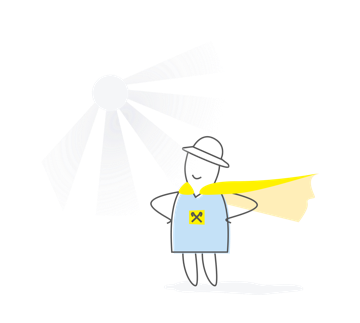Actual business: creating an online school
The growth in demand for paid online education in Ukraine appeared long ago due to the controversial quality of the domestic education system and the development of Internet technologies. But the spring quarantine and the prospect of a return to remote control in autumn and winter became a powerful impetus. The unexpectedly fallen responsibility to educate children at home increased the interest of Ukrainians in this type of education.
According to a source in the Kiev City Council, there are enough educational places in terms of class size in Kiev. But an imbalance exists in the availability of communal educational institutions in the new neighborhoods of the capital. When building houses and entire districts, they think little about educational institutions. And even when they are being built, only for commercial objects, the cost of training in which is not affordable for a significant part of the population. Community schools are either far away or packed and run in two shifts. This means that many families have a demand for specialized commercial secondary education at a reasonable price. Community schools are either far away or overcrowded and operate in two shifts. This means that many families have a demand for specialized commercial secondary education at a reasonable price.
The share of commercial schools in the total number of school institutions in Ukraine, according to the Ministry of Statistics, in 2019 was 1.5% (229 schools). Compared to the previous academic year, the increase was 14.6%. Most of them are, of course, in the capital - 71.1%. In Kiev, private educational institutions make up about 14% of the entire network of educational institutions. For comparison, in the United States, in a country that is considered a driver of the educational sphere, the share of private schools is 25%. This is one of the reasons why the commercial education sector is promising for business.
“Thanks to the quarantine, many families have tasted distance education. Perhaps not everyone saw the good product, each school solved the issue as best it could, but many parents lost the fear that this was something unreal and incomprehensible. Therefore, an increase in clients should be expected in this market, ”explains the founder of the TninkGlobal school network Bogdan Oleksandruk.
The niche began to fill at a unique rate. Commercial offline schools quickly switched to distance learning after the quarantine was announced. According to Vladislava Bandurko, the founder of the Lyceum Educator private school, in a day she developed a plan for the transition of the school and training courses for the UPE to distance learning.
Several online schools have already started operating in the spring. The most famous of them are "Optima Education Center", "Angstrem", "Dzherelo" and "Alternative", which cost from 900 to 3500 UAH per month. There are private schools that, in addition to the traditional form, have offered a service option: a full-fledged online school, in particular, Athens and ThinkGlobal. Other for-profit schools are rapidly developing a new online product and are already recruiting students. For example, the network of private schools Elena Vedernikova Private School offered online classes not only for school students, but also for everyone, who turned out to be about 1000. Online education for schoolchildren from the fall in this network will cost up to UAH 5,000 per month.
The main audience for online schools before the quarantine was children whose parents were dissatisfied with the traditional school or who move frequently, as well as children who need their own pace of study due to health conditions or professional sports or music. Quarantine has exacerbated the situation, and many parents are considering moving to a distance school from September this year or next. Another part of the parents came to the conclusion that the remote control is not suitable for their children. However, the unscheduled crash test formed a core of potential customers for new commercial online schools. Perhaps such a business will not become widespread, but in the capital and regional centers, even during the crisis, there are enough solvent families with needs that are closed by online education. And they will be quite enough for a newly emerging business niche.
Online schools will compete not with "public" education, but with private schools and tutors. Accessibility will help to promote them. Online tuition fees are much lower than full-time tuition fees. The price of knowledge in a private school in the capital and million-plus cities starts at UAH 9,000 and can go up to UAH 40,000 per month. At the same time, online education will cost UAH 2.5-5 thousand per month from each student. The competitive cost is based on the absence of costs that are required when organizing a classic commercial school: rent or construction of a large specialized building with the parameters and location required for licensing, with gyms, its renovation, furnishing and provision of equipment, and high personnel costs. Projects with a developed system of tutoring, interesting approaches to teaching and ensuring social integration - periodic group lessons “in real life”, online communication in a group will be able to compete with the staff of tutors.
However, distance / online education is not the only recent trend. According to Natalya Limonova, co-founder of the interactive math online school GIOS, trend number one is blended learning: “Now we have a great opportunity to introduce massively blended learning (offline + online). For example, platforms like our Global Innovative Online School are a handy tool for both blended and distance learning. This trend is accompanied by the integration of gamification, AR / VR technologies, and various online consultants and assistants into the educational process. " Natalya believes that the niche has broad prospects, since there are very few integrated Ukrainian-language solutions, and emerging startups related to primary school or career guidance for teenagers will be in demand right now.
The same opinion is shared by Vladislava Bandurko, founder of the private school and courses VNO Educator: “The market leader will be the player who offers a mix of online and offline. True homeschoolers do not have a real-time school request (although projects like this are coming soon), they need a personalized class schedule. Parents and children have a request for feedback from the tutor. Video tutorials alone are not enough; consultations with teachers are also needed. This implies the integration of educational technologies, conducting traditional exams, high-quality control of knowledge, teaching the basics of time management and psychological support for students is desirable. Offline activities for groups of students - master classes, conferences, clubs with games, career guidance classes, etc. will become a huge plus for the project. "
According to the experts we interviewed, launching a full-fledged online school will cost at least $ 500,000 in investments with a payback period of 10 years or more. Such a project can be scaled by region and taken outside of Ukraine. A simplified project of a distance school can be estimated at about 100 thousand dollars with a planned payback of up to 5 years.
New online schools will need platforms to operate and will either have to invest in their own or look for partner products. In this regard, the Ukrainian product, which will soon compete with its Western counterparts, is noteworthy - the Human educational ecosystem, which provides functionality for the implementation of the educational process, conducting all communication and analyzing educational data.
When working on a project, entrepreneurs should pay attention to such a moment as the provision of government-approved documents. Without this, it is impossible to attract an audience. An expert from the Kiev City Council notes that the law does not provide for the existence of online schools, but the law gives the go-ahead for various forms of individual education. Online projects are believed to be additional resources that do not negate regular school attendance. As a rule, they are unlicensed and do not provide a document of education. And therefore, parents must register such a child at the nearest school so that he can pass the mandatory exams. Another solution has long been worked out by small private schools. Their students are tested and certified in licensed commercial institutions, for example, the Athens school, and receive a state sample certificate.
The number of children studying in an online school will only grow, according to almost all market experts. Vlada Bandurko is sure that those who wanted to switch to online education, having seen all the shortcomings of organizing distance learning in regular schools, have already switched, another part will make the final decision to switch to one of the online schools after August 15. And the new educational year, which will probably be again distorted by the waves of the epidemic and distance learning on “mega-creative” government programs, will convince even more potential clients that an alternative is needed, and urgently.















